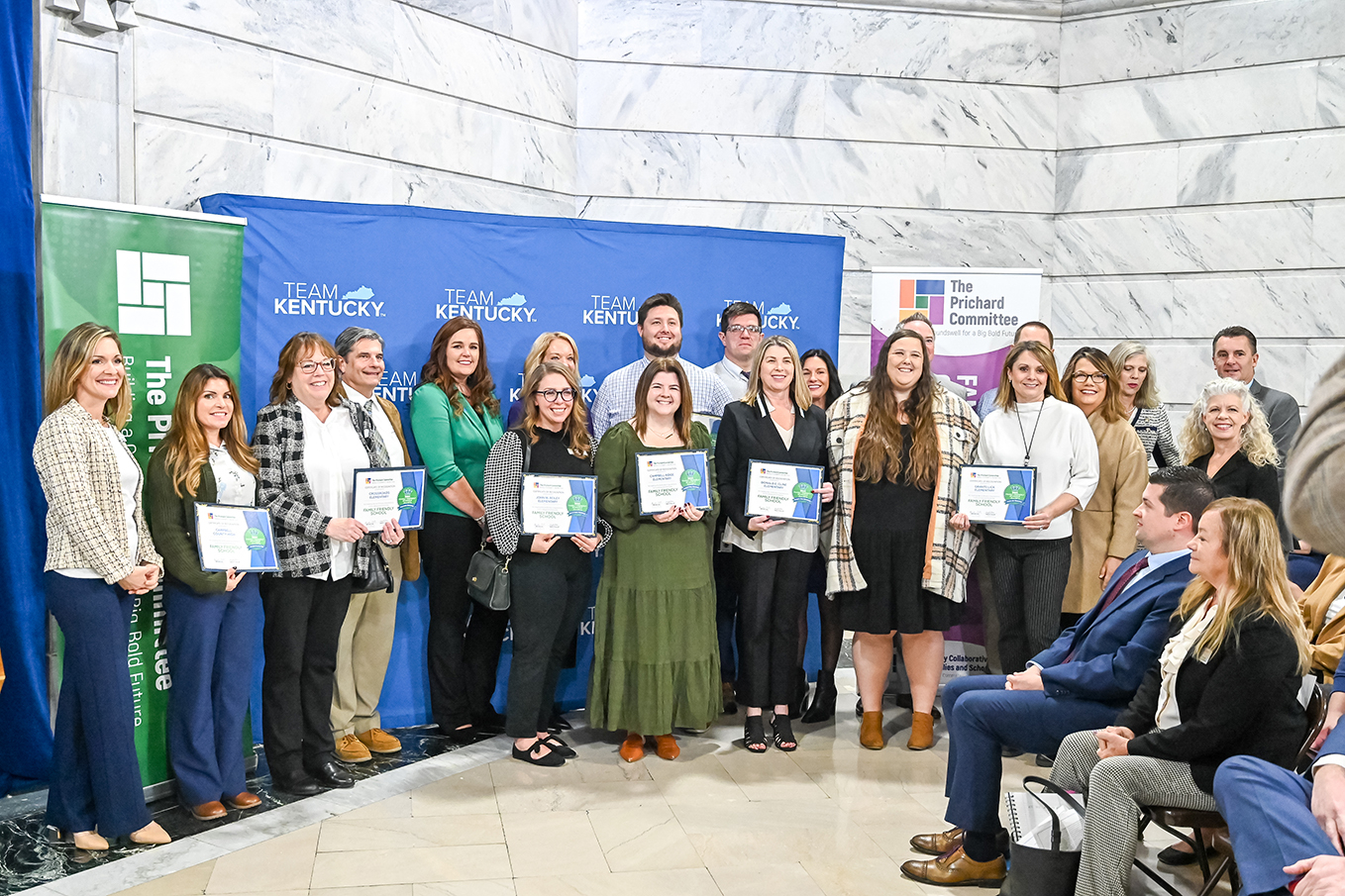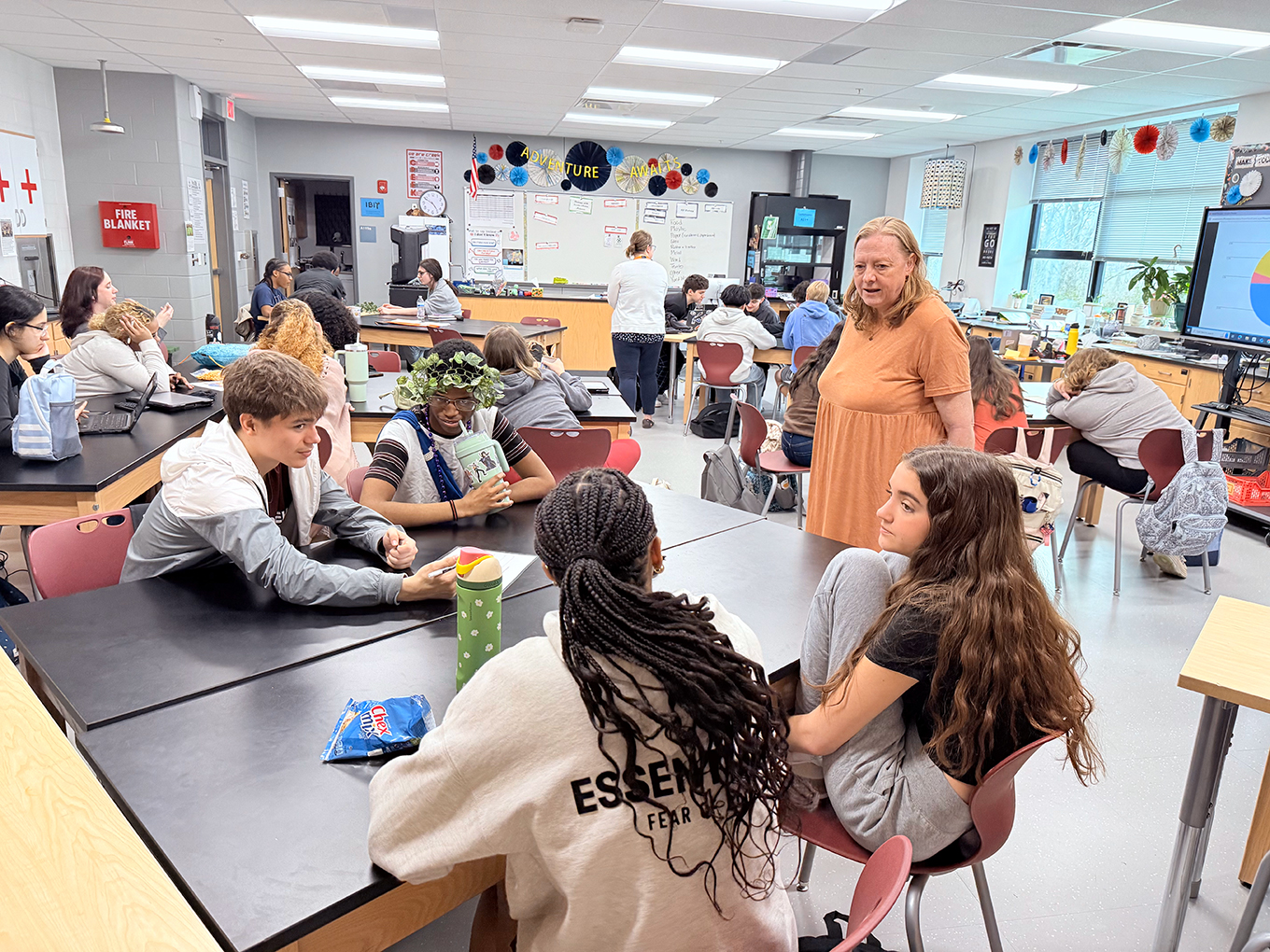
Bridget Powell
Every school year, I take my 5th-graders to the county jail and judicial facility as a culminating part of the Drug Abuse Resistance Education (D.A.R.E.) program. This is usually a somewhat emotional experience for my students. Most have never been in a jail. Walking through the jail doors as we are “locked in,” anxiety kicks in and this experience gets real for my students and me.
Leading my students into the center room of the jail, I scan the faces and names of those incarcerated. It is common for me to see the face of a younger person. However, a couple of weeks after the jail visit this past year, I had an alarming moment. A former student of mine had been arrested for drug possession.
My heart was shattered; that student was now in the very jail I had visited weeks before. Thinking back, I wondered how I could have made a difference for this student. Could I have implemented the D.A.R.E. program better? What if I had implemented a follow-up program, something to touch base with students after they completed the D.A.R.E. class?
Honestly, even though this student had made the choices that led to jail, I was the one soul-searching. We are losing too many young men and women to substance use. As a profession, we must analyze what meaningful instruction we are delivering to make a positive improvement.
I feel like there is a direct connection of mental health to drug/substance use. When students have difficulty coping with life situations or are battling depression, some look to substance use. Our society is seeing several negative effects of depression, with substance abuse and self-harm on the rise, according to an article in the Journal of the American Medical Association.
In the ever-expanding role of being educators in Kentucky, we must make it a priority to focus on the mental health, decision making and well-being of our students. Maybe this effort can help prevent substance abuse as well.
Over the course of my 19-year teaching career, I have realized how important it is to work diligently to make our students strong and mentally resilient. The following are a few strategies I use to help build mentally strong and resilient students.
RELATIONSHIPS
It all begins with building authentic relationships where students feel they are valued. Students need to develop healthy relationships early on and continue to build them throughout their school career. Educators must prioritize taking time to create genuine connections with our students.
As a 5th-grade teacher, I make sure I am up-to-date on my sports knowledge, video game trends, social media apps and musicians. Students are amazed when you mention things that are important to them. Asking about their football game or mentioning the meteor shower on Fortnite (which is a video game), can open doors to other discussions you may not have otherwise had with students. We can start fixing our schools, one word, one conversation, one student at a time.
DECISION MAKING
It is my belief that poor decisions tend to be habitual. Students who make inappropriate decisions early in life are more apt to make inappropriate decisions during their teenage years and early adulthood. Students should be purposefully taught how to make good decisions.
Students love personal stories. Tell them about the times you have had to make important decisions. Have your students discuss appropriate decision-making skills with one another in small groups.
Decision-making skills can be incorporated into any subject area. For example, in English language arts you can discuss what decisions characters in books or stories could make. Science and STEAM learning can use decision making as team-building activities to complete their investigations. Project-based learning is fantastic for building decision-making skills, independently or with a group.
Purposefully teaching appropriate decision-making skills will stay with our students forever.
BEHAVIOR MODELING
The children in our communities need to see us modeling healthy and appropriate behavior for managing stress, disappointment and even conflicts. Observing how we effectively deal with non-ideal situations helps students apply that appropriate behavior in their own lives.
Teachers can show their students how they relax and wind down, such as exercise or coping strategies. For example, I like to lead my students through deep breathing techniques to help ease anxiety. Without displaying confidential information, we also can use real-life examples of how we have used conflict resolution strategies.
BE ALERT
Being alert of your students is another way to assist in promoting good emotional health. Keep your “teacher radar” on at all times.
Recess is the best place to observe how students interact with others. If a student seems to be isolated from peers, be there to offer suggestions. You could suggest areas of play for them to go to or seek our leaders in your class to reach out. You can mix peer groups and encourage students to spend time with all classmates. Group games are a great way to get all students involved. However, the goal is for students to learn how to be involved in interactive play with others on their own.
Furthermore, learn the signs of substance use and self-harm, then be proactive to get a student help. Your school guidance counselor will have more information if you feel a student needs help.
Mental health and resiliency must be addressed as we move Kentucky students forward. Our students deserve every opportunity for success; strong mental health is the foundation for that success. Together we can make a difference to improve life for our students.
Bridget Powell teaches at Central Elementary (Marshall County), which has been recognized by the U.S. Department of Education as a Blue Ribbon School. She has been teaching in the Marshall County school system for the past 19 years. She earned a bachelor’s degree in elementary, and learning and behavior disorders, and a master’s in education, all from Murray State University. Powell completed National Board Certification in 2005. Currently, she serves as a 2017-2019 Hope Street Group Fellow for Kentucky.




Leave A Comment